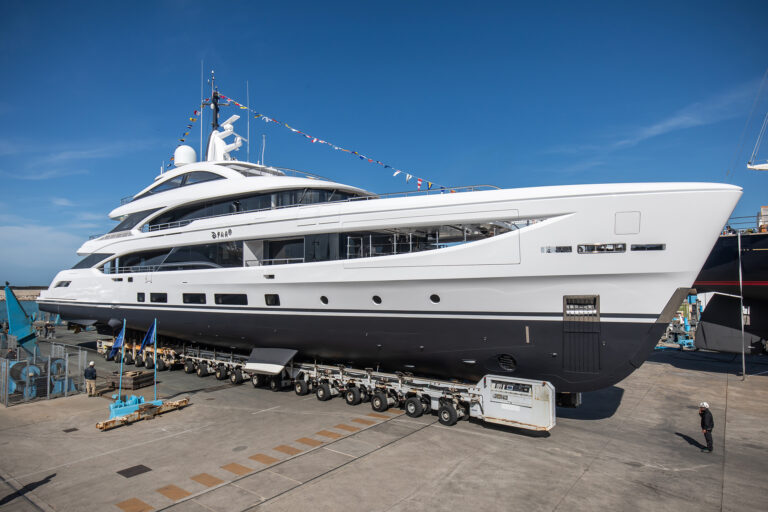Regular Surveying and Preventative Maintenance
Owning a yacht is not only a symbol of luxury and freedom but also a significant financial investment. Like any valuable asset, the long-term value of a yacht depends on how well it is maintained. A yacht’s condition, performance, and resale value can diminish over time without proper care. One of the most effective ways to preserve your yacht’s value is through regular surveying and diligent preventative maintenance. These practices ensure that the vessel remains in optimal condition, preventing small issues from becoming costly problems and helping retain its market value. In this article, we explore how regular yacht surveys and preventative maintenance can help safeguard your investment.
The Importance of Regular Yacht Surveys
Regular yacht surveys are essential for maintaining the vessel’s structural integrity, safety, and overall condition. Marine surveys provide a detailed assessment of a yacht’s systems, components, and materials, identifying potential issues early before they lead to more significant damage. By scheduling routine surveys, yacht owners can stay informed about their vessel’s condition and address any necessary repairs or maintenance promptly.
There are several types of surveys that are useful for maintaining a yacht’s value, including:
1. Condition and Valuation (C&V) Surveys:
These surveys are often required by insurance companies but are also valuable for owners who want an accurate assessment of their yacht’s condition and market value. A condition and valuation survey evaluates all aspects of the vessel, from hull integrity and machinery to safety equipment. This type of survey provides a snapshot of the yacht’s current condition and highlights areas that may need attention to preserve its value.
2. Refit and Maintenance Surveys:
Yachts that undergo regular refits or significant upgrades benefit from refit and maintenance surveys. These inspections ensure that all work is carried out to high standards and that the yacht remains seaworthy after repairs or modifications. Conducting these surveys ensures that the investment in upgrades is protected and that any potential issues are resolved before they escalate.
3. Pre-Sale Surveys:
For yacht owners looking to sell their vessel, a pre-sale survey is an essential step in maximizing its resale value. This type of survey gives prospective buyers confidence that the yacht has been well-maintained and is free of major defects. The surveyor’s report can also help justify the asking price, as it provides an unbiased evaluation of the yacht’s condition.
Preventative Maintenance: The Key to Longevity
Preventative maintenance is the foundation of yacht care. By regularly inspecting and servicing critical systems and components, yacht owners can extend the lifespan of their vessel and reduce the likelihood of expensive repairs. Preventative maintenance includes routine tasks like cleaning, engine checks, and inspecting electrical systems, as well as more comprehensive measures such as hull maintenance and equipment upgrades.
Here are some practical steps for maintaining your yacht and preserving its value:
1. Regular Engine Servicing:
The yacht’s engine is one of its most critical systems. Regular engine servicing, including oil changes, fuel filter replacements, and coolant checks, helps keep the engine running efficiently and prevents mechanical breakdowns. Following the manufacturer’s maintenance schedule is crucial to avoid major engine issues that can significantly reduce the yacht’s value.
2. Hull Inspections and Anti-Fouling:
The hull is the yacht’s first line of defense against the marine environment. Regular inspections for damage, blistering, and corrosion are vital to ensure the hull remains in good condition. Applying anti-fouling coatings is another essential preventative measure, as it prevents the buildup of marine growth that can degrade hull performance and lead to costly repairs. Keeping the hull clean and protected helps preserve the yacht’s resale value and ensures optimal performance at sea.
3. Electrical System Checks:
Electrical problems can be difficult to diagnose but can cause significant issues if left unattended. Regularly inspecting the yacht’s electrical systems, including wiring, batteries, and connections, helps prevent malfunctions that could lead to safety hazards or damage to onboard equipment. Replacing outdated electrical systems can also enhance the yacht’s market value, especially for older vessels.
4. Deck and Rigging Maintenance (for Sailing Yachts):
On sailing yachts, the deck and rigging experience heavy loads during operation. Regularly inspecting the rigging, sails, winches, and deck hardware for signs of wear, corrosion, or fatigue is essential to avoid unexpected failures. Maintaining these components not only ensures the yacht’s safety but also retains its value by keeping the sailing systems in top condition.
5. Plumbing and Waste Systems:
Leaks or blockages in the yacht’s plumbing systems can lead to water damage and unpleasant odors, which negatively affect the vessel’s value. Regular maintenance of the freshwater and waste systems, including inspecting hoses, pumps, and valves, helps prevent costly damage and ensures a comfortable onboard experience.
6. Interior Care:
The yacht’s interior can wear over time, especially in high-traffic areas like the galley, cabins, and heads. Regular cleaning, repairs, and refurbishment of the interior help maintain the yacht’s aesthetic appeal and comfort. Keeping the interior in excellent condition not only improves the onboard experience but also plays a significant role in maintaining the yacht’s resale value.
Benefits of Regular Maintenance and Surveying
By committing to regular surveys and preventative maintenance, yacht owners can enjoy several key benefits:
- Maximizing Resale Value:
A well-maintained yacht with documented service records and survey reports will fetch a higher price when it’s time to sell. Buyers are more likely to invest in a vessel that has been cared for, reducing their risk of unexpected repairs. - Avoiding Costly Repairs:
Small problems can escalate into major issues if left unattended. By identifying and addressing potential problems early through regular surveys and maintenance, owners can avoid costly repairs and prolong the life of their yacht. - Ensuring Safety and Seaworthiness:
Regular inspections and maintenance keep the yacht safe and seaworthy, reducing the risk of accidents or breakdowns at sea. Keeping safety equipment up to date and in good condition is essential for ensuring the safety of everyone on board. - Compliance with Insurance and Regulatory Requirements:
Many insurance companies require routine surveys to ensure the yacht meets safety standards and remains insurable. Regular surveys help owners comply with these requirements and avoid any gaps in insurance coverage. - Protecting Your Investment:
A yacht is a significant financial investment, and maintaining it properly protects that investment over time. Regular upkeep prevents the vessel from deteriorating and preserves its long-term value.
Conclusion
Maintaining a yacht’s value requires dedication to regular surveys and preventative maintenance. By staying proactive with inspections, servicing key systems, and keeping the yacht in excellent condition, owners can ensure their vessel remains seaworthy, safe, and valuable. From preserving resale value to avoiding costly repairs, the benefits of consistent care are undeniable. Regular surveys by a qualified marine surveyor, combined with diligent maintenance, will not only protect your investment but also ensure you continue to enjoy your yacht for years to come.






